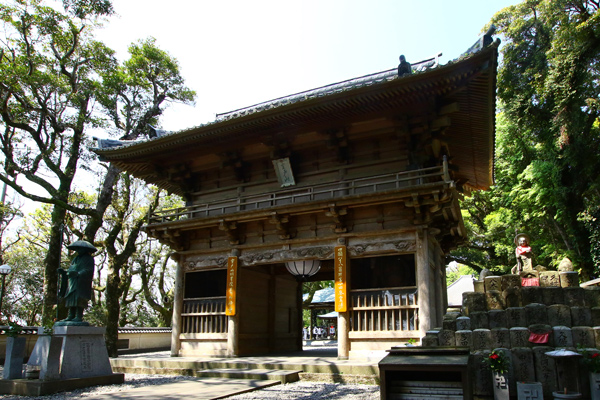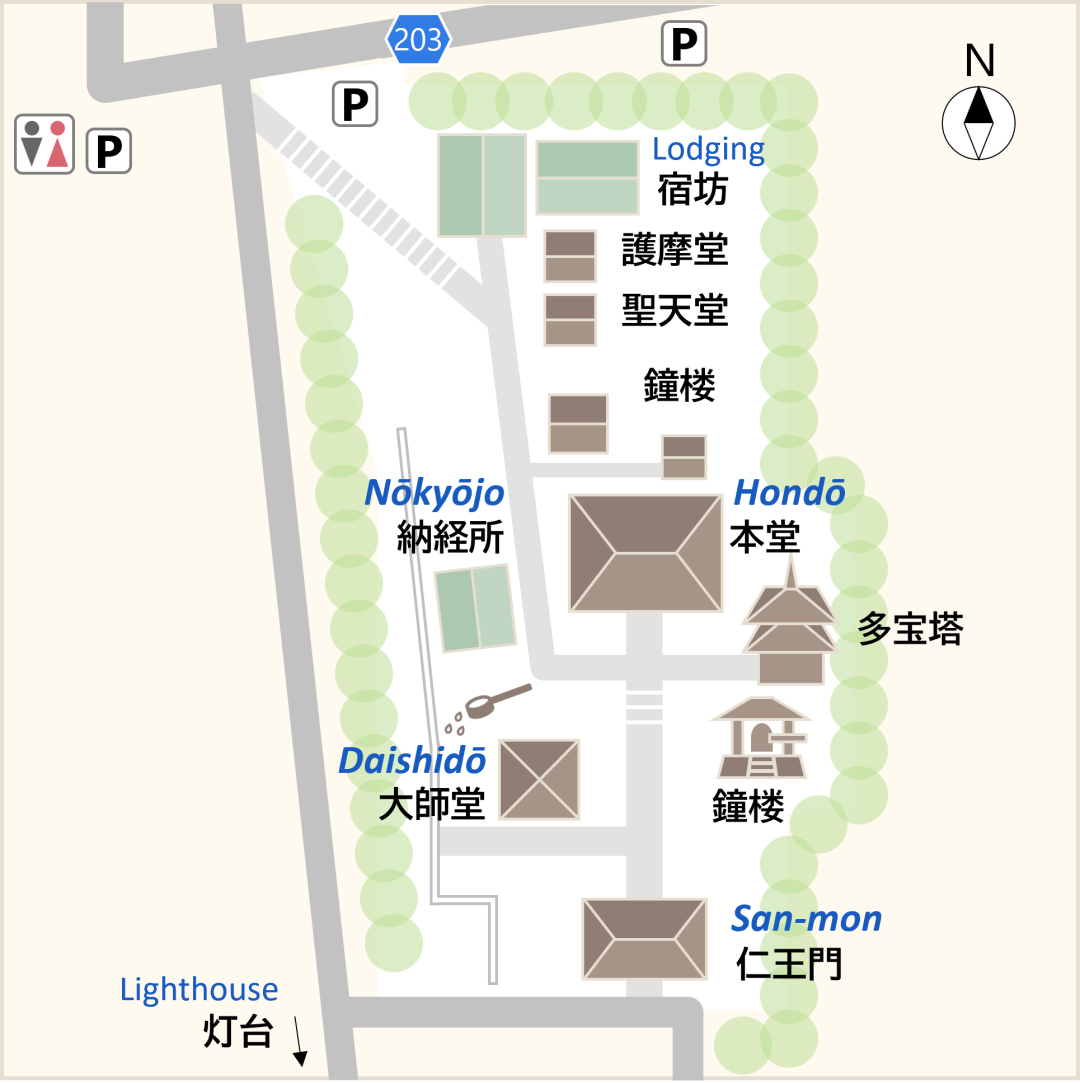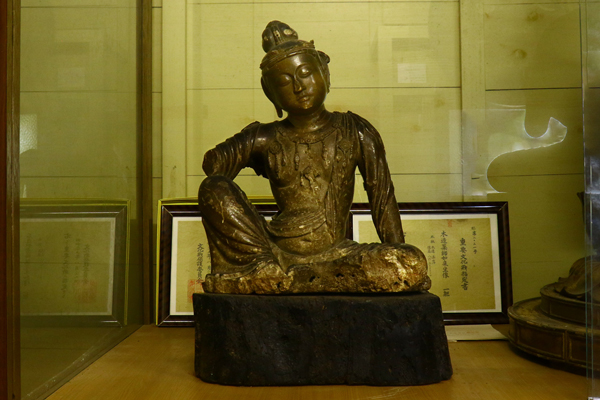The Shikoku Pilgrimage Temple Guide
Temple 24, Hotsumisakiji

Precinct map

History of the temple
This is the first of the pilgrimage temples in Tosa (Kochi). They are considered temples of religious discipline. It is located at the tip of Cape Muroto, where the white waves of the Pacific Ocean crash against black rocks. The rocks are sharply cracked by the waves of the Kuroshio Current. Kukai/Kobo Daishi came here in 792. At a cave where the sky and the sea met, wearing a Buddhist robe to protect himself from the wind and rain, he engaged in the Buddhist practice called Kokuzo Gumonjiho. He was 19 years old. The details of this episode are described in the Sango Shiki, written by Kukai/Kobo Daishi five years later.
“… Working hard on To-shū Murotosaki, without sparing the sounds of the valley, the morning star figure arrived. Felt it in the heart and it entered the mouth, Akasagarbha illuminated and shone, revealing the power of Buddha and the uniqueness of the Buddha …”
In 807, the year after his return from Tang Dynasty China, Kobo Daishi visited Cape Muroto again and founded the temple by imperial order. At the site where he had successfully completed the Kokuzo Gumonjiho, he carved a statue of Kokuzo Bosatsu (Bodhisattva of Wisdom and Memory) to serve as the principal image of the temple and built the Hondo. The temple was venerated by emperors such as Emperor Saga (reigned 809-823). During the Ashikaga Shogunate (1336-1573), the temple became the Prefectural Temple of Tosa. During the Sengoku (1467-1590) and Edo periods (1603-1868), the temple flourished thanks to donations from warlords and feudal lords.
It is said that in the old days, the temple was a place of esoteric Shingon Buddhism. Women were forbidden to enter and they had to pray from the tip of Cape Muroto. This ban was removed in 1872. Temple 26, Kongōchōji, on the west side of Cape Muroto, is called Nishidera (West Temple) and Hotsumisakiji is called Higashidera (East Temple). This name, Higashidera, is also written in nokyocho (the stamp book that pilgrims carry). Hotsumisakiji is located in the center of Muroto-Anan National Park, which has a tropical atmosphere. It is famous as the place where Kobo Daishi attained enlightenment.
Highlights
National Important Cultural Property
The stone statue of Nyoirin Kannon Hankashiyuizo is famous. There is also a wooden seated statue of Yakushi Nyorai, a wooden standing statue of Gekko Bosatsu, and a three-legged lacquered board. They are all in the Homotsukan.
Mikurodo Cave
This is a cave where Kobo Daishi practiced Kokuzo Gumonjiho asceticism.
Myojoishi
During Kobo Daishi's training, these stones shone like stars and prevented a venomous dragon from interfering with Kobo Daishi. You can find them on the coast. They are made of gabbro, an igneous rock.

Annual Events
| January 13 | Hatsumatsuri (First ceremony) |
Details
Names: Murotozan, Myōjōin, Hotsumisakiji
Denomination: Shingon sect, Buzan school
Principal image: Kokuzo Bosatsu
Founder: Kobo Daishi
Founded: 807
Access
Address: 4058-1, Murotomisaki-cho, Muroto City, Kochi 781-7101
Phone: 0887-23-0024
Parking: 37 cars (free) 9 microbuses (300 yen) 7:00 a.m.-5:00 p.m.
Lodging: Available (100 people)
Official website: None
